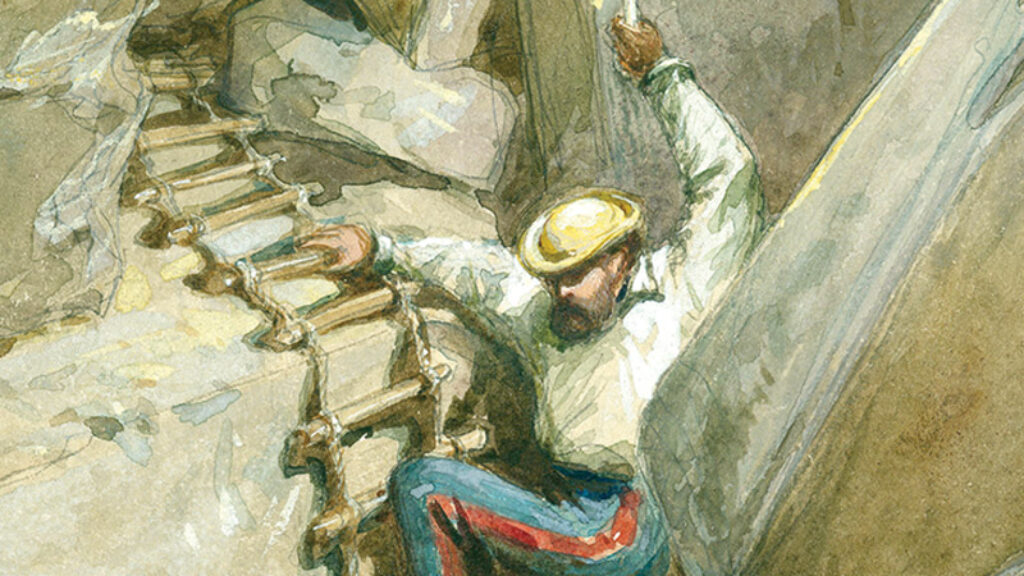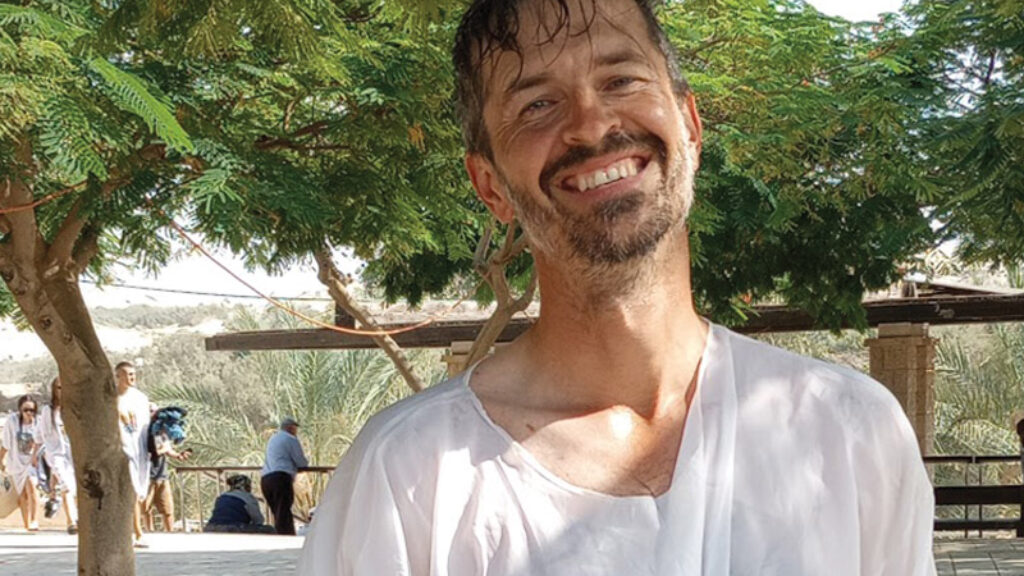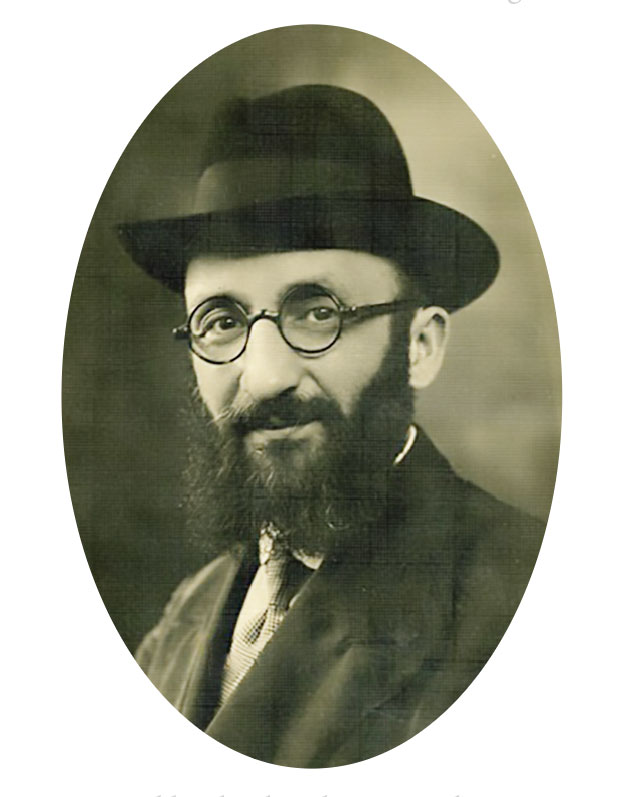“The Point of Free Will”: A Response to Abraham Socher
In Friedrich Schiller’s poem “The Philosophers,” the following conversation takes place between the “Scruples of Conscience” and “Decision”:
Scruples of Conscience: I like to serve my friends, but unfortunately I do it by inclination. And so I am bothered by the thought that I am not virtuous.
Decision: There is no other way out but this! You must begin to despise them. And do with repugnance what duty bids you.
I was put in mind of this passage by Abraham Socher’s lively and penetrating essay “Is Repentance Possible?” (Fall 2017). The essay is concerned with two competing approaches to morality: Aristotelian virtue ethics based on the cultivation of character and dispositions, and the Judeo-Christian understanding based on obedience to laws and commands. As Socher notes, Aristotle could not even imagine the question Schiller slyly poses above, a variant of which Moses Maimonides stated more frankly: Is it better to overcome one’s evil inclinations to do good, or to do good wholeheartedly out of “innate longing and desire”? For Aristotle the latter was the only kind of morality. The talmudic sages, by contrast, leaned toward the former position, leaving Maimonides to explain away various statements to this effect so as to save virtue ethics. While unimpressed by Maimonides’s interpretive gymnastics, Socher nonetheless sets up a compelling case for the Aristotelian view, only to turn the tables on us by pointing out that, if it is correct, repentance isn’t possible. And who wants to live in that moral universe?
Like Socher, I find neither side of the debate entirely satisfying. But I think there is a way out of this dilemma from within the Jewish tradition, though not in the medieval writings—which still maintain something of a monopoly on contemporary discussions of Jewish philosophy—but in the oft-neglected realm of Eastern European rabbinic thought, in particular that of Rabbi Eliyahu Dessler (1892–1953). Before turning to his answer, a word about Dessler himself. His impact on the non-Hasidic ultra-Orthodox world is difficult to overestimate, and his impact on Modern Orthodox thinking is significant, but he is almost entirely unknown outside of Orthodox circles. He was a disciple of the great teachers of what is known as the mussar school, a movement originating among the 19th-century “Lithuanian” (i.e., non-Hasidic) yeshivas that sought to emphasize moral and spiritual self-cultivation alongside traditional talmudic study.
The word mussar has taken on the connotation of chastisement (or “motivational admonishment,” as my own mussar teacher put it), and the movement from its inception focused on employing psychological techniques (what today would be called a cognitive behavioral approach) alongside meditations (often on hellfires) to produce purity of behavior, thought, and motivation. What is often missed, especially by academic scholars, is that mussar gradually developed its own theology, focused primarily on moral philosophy. Dessler epitomized this shift.
For mussarists, the internal struggle between good and evil is the great cosmic and spiritual drama, a position entirely in line with the conventional rabbinic view of moral decision-making. Dessler, in one of his most important essays, elaborates on how such decisions take place by describing what he calls “the point of free will.” Most of the time, he writes, people make moral decisions by force of habit. Only rarely must they engage in true moral struggle. A thief, he points out, won’t hesitate to steal, but might face a true moral choice if he must choose between killing and being caught. By contrast, Dessler gives us the example of an Orthodox Jew who wouldn’t dream of eating non-kosher food, but doesn’t hesitate to gossip. Each person then has his or her own “point of free will,” where real moral decision-making happens.
In a memorable passage, Dessler employs the metaphor of a war; true moral struggle takes place only at the front lines. And this brings us to his conception of repentance:
When two armies are locked in battle, fighting takes place only at the battlefront. . . . If one side gains a victory at the front and pushes the enemy back, the position of the battlefront will have changed. . . . The situation is very similar with regard to [moral choice]. . . . With each good [choice] successfully carried out, the person rises higher in spiritual level; that is, things that were previously in the line of battle are now in the area controlled by the [good inclination] and actions done in that area can be undertaken without struggle . . . In this sense we can understand the [talmudic] saying, “one mitzva leads to another.” (Strive for Truth!, vol. 1, part 2, pp. 52–54)
Repentance then doesn’t mean having to overcome temptation each time one is confronted with it, but to achieve a state where there is no struggle whatsoever. But, Socher might object, this is mere habituation; what about the original question, concerning the cultivation of inner virtue? How does someone without virtue, or without a particular virtue, truly repent—not in the sense of acknowledging wrongdoing after the fact and begging forgiveness from God and man, but by actually improving himself or herself?
It so happens that the cultivation of inner virtue was a prime concern of Dessler and his fellow mussarists, who were fixated—perhaps excessively—on obtaining purity of motive and thought. It’s hard to believe that he didn’t see successfully moving the front lines as involving some sort of inner change as well. But how? While Dessler doesn’t say so explicitly, I think the answer comes from another rabbinic statement: “One should always study Torah and fulfil commandments for ulterior motives (shelo lishma), since, by doing them for ulterior motives one will ultimately come to do them for pure motives (lishma).” To put it differently, good outward actions can foster inner virtue; the means justify the ends. And if the appeal to talmudic authority doesn’t convince you, modern psychology has come to the same conclusion.According to what’s known as dissonance theory, when a person’s belief is out of sync with his behavior, the most likely outcome is that his beliefs will change to accord with his actions.
Thus the components of repentance proceed in steps: First, repeatedly win the internal struggle. After a few victories, the struggle attenuates. The external actions are slowly internalized, creating improvement of character, and eventually simply become habit. Then the penitent can move on to the next moral struggle, and “proceed from strength to strength,” as the Psalmist puts it.
The interesting thing is that Aristotle had a similar view of how to develop character: “[B]y refraining from pleasures,” he writes, “we become temperate, and once having become temperate we are most capable of refraining from them” (Nic. Ethics II:10). Indeed, the Ethics puts a great deal of emphasis on habit, and it’s no coincidence that the words for “character” and “habit” are nearly identical in Ancient Greek—both transliterate as ethos. And Aristotle, whose virtue ethics philosophy professors like to contrast to the “deontological” (i.e., law-based) system preferred by Judaism, concludes the Ethics by discussing the potential of laws to render people virtuous.
Now, the gap between Aristotle and the rabbis remains. He doesn’t sanctify the moral battle and the overcoming of the evil inclination; he is quite clear that his preference is for virtue to be instilled in children when they are young, so that they will love the good and shun the bad. Of course, Dessler would prefer that too. But he, unlike Aristotle, would argue that such people will nonetheless have to fight their own struggles, albeit on a level of piety far more exalted than yours or mine—yet equally profound and dramatic. Dessler’s approach suggests that Judaism’s answer to Maimonides’s question can be “both”: God wants us to triumph on the moral battlefield, but then to cultivate our triumphs into virtue.
In the quotation from Schiller with which I began, the poet was not parodying rabbinic moralists, but Immanuel Kant. Kant believed that one should do good not because she desires to, or loves the good, but because she ought to. But to this he added a very unrabbinic idea: First, a person must determine the good through her own faculty of reason, legislating for herself by applying the famous categorical imperative. For the rabbis, of course, legislation ultimately comes from God. I first encountered Schiller’s poem in G. W. F. Hegel’s Elements of the Philosophy of Right, in which Hegel seeks to synthesize Kantian and Aristotelian thought; he does so by attacking the former for confusing morality (an inner event) with ethics, which are based on habit. I won’t get into whether Hegel’s attempts to redeem the ideas of habit and law in modern moral philosophy are ultimately successful. I certainly don’t claim to have mastered his notoriously dense writing on the subject. But it is worth noting that Dessler and some of his fellow mussarists can be set alongside the great German idealist just as surely as Maimonides or Mendelssohn. Who knows? Perhaps they can even help us find our way out of the modern crisis of moral thought that is the subject of Socher’s essay.
Abraham Socher’s original article can be found here.
His rejoinder to Andrew N. Koss can be found here.
Comments
You must log in to comment Log In
Suggested Reading
The Other Bernstein
Late August 2018 marks the 100th anniversary of Leonard Bernstein’s birth and the first Yahrzeit of his brother, Burton, who wrote an incredible family memoir.

The Treasure of the Jews
The seductive idea that the real Jerusalem lurks somewhere beneath the actual city, with its grocery stores, traffic, and inconveniently present residents, has motivated archaeologists and journalists since the 1800s.

Complicated Community: A Conversation with a Jewish Chavista
What happens to a Jewish supporter of Hugo Chavez when the revolution descends into chaos?

Dead Sea Walking
Shay Rabineau had a simple plan: circle the Dead Sea on foot in two weeks while navigating treacherous heights, marshy flats, military checkpoints, and ad hoc baptisms. What could go wrong?

dmecs
Seeing that Aristotelian and Jewish points of view are expressed, it might also be interesting to contrast these with a Christian understanding of moral choice. While the "changing by doing" line of thought is interesting and has great truth in it, it is still a form of "boot-strapping" which relies on a prior commitment to actually take hold.
My understanding of the Torah leads me to believe that after Adam's transgression in Gen 3, it has become impossible for man to make that leap of commitment by any internal process, but he must be "born again" - a work of God's grace in his heart.
This is not to proselytize Christian doctrine on a Jewish site, but I sense the age-old "dilemna" to be unsolvable otherwise.